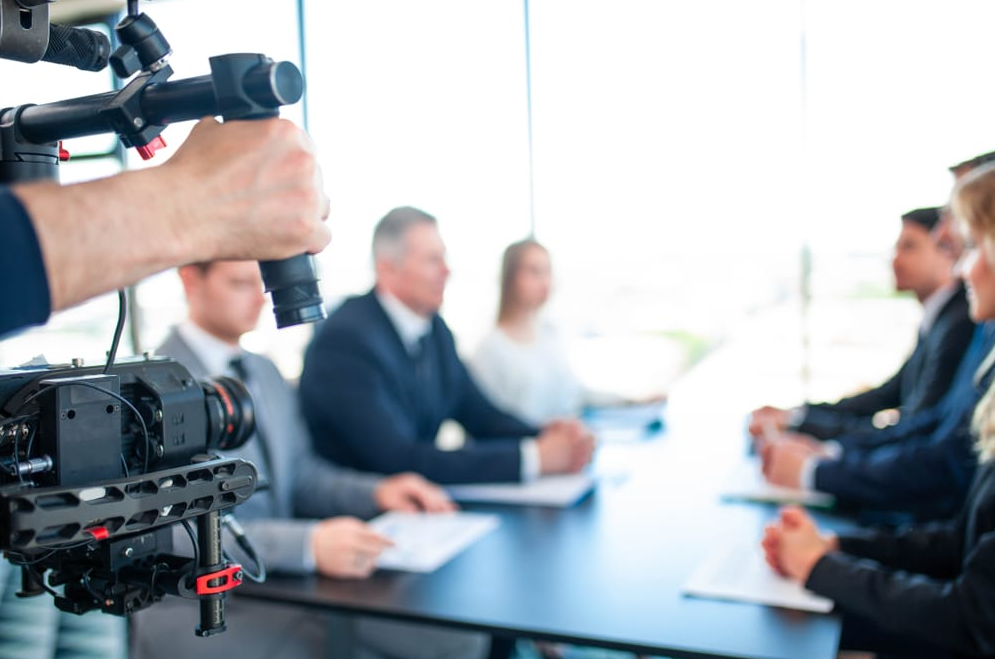The Duty of Legal Videography in Depositions and Tests
Legal videography has emerged as an essential tool in both depositions and tests, giving a complex approach to recording witness testaments. As lawful specialists progressively acknowledge its value, it prompts a deeper examination of just how these aesthetic documents can influence juror understandings and trial end results.
Relevance of Legal Videography
Legal videography plays a pivotal duty in the documents and presentation of depositions and tests. This specific field combines technological skills with lawful expertise to create a dependable record of proceedings that can considerably influence case outcomes. The appearance of lawful videography improves the understanding of witness statement, enabling jurors and judges to observe not just the talked words but also the temperament, feelings, and body language of the witnesses.

The importance of lawful videography extends past the court; it additionally plays an important duty in protecting proof for future recommendation, whether for appeals or more lawsuit. As such, its assimilation right into the legal procedure is necessary for making certain a fair and accurate depiction of the truths, ultimately adding to the quest of justice.

Process of Legal Videography
While recording the nuances of depositions and trials, the procedure of lawful videography involves a number of essential steps that make sure top quality, precise recordings. An expert lawful videographer prepares by assessing the case materials and comprehending the certain needs of the deposition or test. This prep work includes familiarizing themselves with the participants and the context, which aids in catching significant information.
On the day of the recording, the videographer establishes up the necessary equipment, which usually consists of high-def electronic cameras, microphones, and correct lights. Ensuring optimal angles and sound quality is essential, as it directly impacts the effectiveness of the recording. The videographer communicates with attorneys and participants to develop methods, making certain that every person recognizes the recording procedure.
Throughout the deposition or trial, the videographer carefully tape-records the procedures, paying close attention to both verbal and non-verbal cues. legal videography. This consists of recording the temperament and responses of witnesses and attorneys. After the session concludes, the videographer may edit the footage for clarity and conformity with lawful requirements, creating a final item that properly shows the procedures for future reference and use in legal contexts
Advantages in Depositions
The consolidation of videography in depositions provides numerous benefits that improve the overall procedure of collecting evidence. One primary advantage is the ability to record witness testaments with visual and acoustic integrity, supplying a much more precise representation of the witness's temperament, tone, and body language. This multidimensional approach permits lawyers and juries to assess reliability better than conventional written records alone.
In addition, videographed depositions serve as a powerful device for preserving testament. Must a witness become not available for trial, their taped deposition can be played in court, ensuring that their proof remains easily accessible and relevant. This element considerably lowers the danger of shedding essential info that can affect instance outcomes.
Moreover, using legal videography promotes far better prep work for attorneys. Examining video clip footage allows legal groups to assess and refine their techniques, recognizing strengths and weaknesses in their situations. This primary advantage can cause even more engaging presentations in court.
Finally, videography boosts the total professionalism and trust of the deposition procedure, instilling confidence in clients relating to the thoroughness of their lawful depiction. By leveraging modern technology, attorneys can substantially boost the performance of depositions.
Influence On Trials
In lots of tests, the assimilation of videography can dramatically affect the learn the facts here now discussion of proof and the jury's perception. Legal videography captures witness testimonies and crucial evidence in a dynamic format, allowing jurors to involve with the product on multiple degrees. This aesthetic part boosts the narration facet of a test, supplying context and psychological vibration that typical text-based proof might lack.
Furthermore, video recordings can serve as powerful tools for impeachment during interrogation. When disparities arise between a witness's previous declarations and their courtroom testimony, video clip proof supplies an objective reference that can guide jurors' viewpoints. This immediacy and clearness can bolster the trustworthiness of a celebration's narrative while at the same time undermining opposing debates.
Furthermore, the use of videography can aid enhance complex details, making it a lot more available to jurors who might struggle to realize complex details offered entirely via verbal testimony. By incorporating visuals with auditory details, legal videography can boost retention and understanding, eventually influencing the court's decision-making process. The effect of videography in tests prolongs beyond simple visual appeals; it plays a crucial duty in shaping the lawful landscape and outcomes.
Future Trends in Legal Videography
As we look toward the future of lawful videography, several arising fads promise to improve its duty within the courtroom. One considerable fad is the combination of fabricated intelligence (AI) in video evaluation and editing - legal videography. AI can improve the procedure of identifying essential minutes in videotaped depositions, allowing attorneys to promptly access relevant material, therefore enhancing efficiency in situation preparation
Additionally, the increase of online fact (VIRTUAL REALITY) and augmented reality (AR) innovations is anticipated to transform how jurors experience proof. By submersing jurors in a substitute setting, these modern technologies can provide a more profound understanding of complicated situations, causing even more informed deliberations.

Moreover, the increasing demand for remote depositions, accelerated by the COVID-19 pandemic, will likely proceed. Lawful videographers will certainly require to adjust to brand-new software program and systems to make certain high-quality recordings in virtual setups.
Lastly, the growing emphasis on information security will necessitate more stringent methods for storing and sharing video evidence. As the legal landscape evolves, legal videographers must stay abreast of these fads to keep their significance and effectiveness in look here the judicial process.

Conclusion
In recap, legal videography offers an essential feature in the judicial process, improving the integrity of depositions and tests. By recording the nuances browse around this web-site of witness testaments, this medium not just preserves necessary evidence however additionally aids in offering information successfully to jurors. The importance of aesthetic documents in assessing reputation and helping with interrogation can not be overstated. As innovation remains to evolve, legal videography is positioned to further transform its function within the lawful landscape.